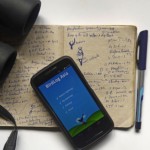#BOUasm22 – Resources
 Citizen science and birds
Citizen science and birds
People powering ornithology
10 – 11 October 2022
Attendee resources
ATTENDEE GUIDE – all you need to know to attend this BOU Zoom conference
FULL PROGRAMME (Zoom and Twitter presentations)
KEYNOTE PRESENTERS AND PANELLISTS
ABSTRACTS
ONLINE SCHEDULE APP (with built in time converter)
SLACK APP our online networking app which also includes viewing posters, talking to presenters, etc.
SLACK GUIDE (user guide to our online networking app)
CODE OF CONDUCT
WORLD CLOCK including UTC time conversion for your local time
More resources will appear here, as we approach the dates of the conference.
Important note: all times given on these conference pages are UTC. Use the above online scheduler app or ensure you check your local time for the event here.
Conference theme, aims and scope
Ornithology has a long history of participation by volunteers who undertake bird surveys and other research, and much of our knowledge of birds would not exist without ‘citizen scientists’. This approach has enabled studies to occur across wider areas and over longer time scales than would otherwise be possible. Linking citizen science with technological and analytical advances may further increase our capacity to study birds at scale and meet more of the challenges posed by modern ornithology.
Innovative citizen science programmes have unlocked new ornithological data, for example in population ecology, phenology, tracking environmental change and migration. At the same time new and diverse audiences are engaging in research and conservation. This has led to novel research on who citizen scientists are, how to motivate and support involvement and how to measure the impact of participation. Meanwhile, robust data collection and validation within citizen science programmes remain key areas for learning, particularly as new technologies start to automate much of what citizen scientists record.
Session themes will broadly explore:
- Citizen science as a data gathering/processing tool across ornithological disciplines;
- Best practices for managing, analysing, and validating data from citizen science projects;
- Novel developments and opportunities for ornithologists in citizen science;
- Citizen scientist engagement, diversity, retention, and learning;
- Impacts of citizen science on birds and people.
Seven sessions will specifically cover:
- Citizen science in ornithology: population monitoring;
- How to engage and retain citizen scientists in ornithology;
- Challenges and opportunities of citizen science data;
- Citizen science in ornithology: estimating demographic parameters;
- Benefits of citizen science for organisations, participants and birds;
- Citizen science in ornithology: behaviour and novel applications;
- Emerging ideas in citizen science for ornithology.
This two-day meeting aims to communicate what succeeds and fails in citizen science programmes, what technological advances are available to ornithology, the prominence of rigor and evaluation, and the social science of community participation in ornithology. Citizen science will likely continue to be a key method for ornithology long into the future and this meeting will be of interest to a wide range of ornithologists.
IBIS themed issue
Submissions are open for an IBIS themed issue on Citizen Science. The issue will promote the latest studies involving citizen science data, as well as research methods used to analyse these types of data, and including studies from citizen science platforms and long-term recording schemes.
Submissions will be open to everyone, whether they present at the conference or not, on topics that fit within the aims and scope.
Read our submission guidelines and select the special issue box when prompted during submission.
Deadline for submissions: 31 March 2023
Our parallel conference format
The BOU strives to make all our events inclusive and accessible. To help achieve this we now run all in-person and virtual Zoom conferences as dual platforms events with a Twitter conference running alongside the main in-person/virtual event.
Every presenter at a in-person/virtual event will now be required to tweet a summary of their presentation as part of the parallel Twitter event. We will also include additional Twitter-only presentations during the breaks of the in-person/virtual event.
For example, our BOUsci20 virtual Zoom event attracted an ‘in-the-room’ audience of 375 registrants, but the parallel Twitter event had over 550 participants, an ‘in-the-room’ audience of >1,600 people and a wider reach of 750,000 – from right around the world.
Unlike other social media platforms, Twitter is genuinely open access as you don’t even need an account to follow the Twitter event content. The BOU knows Twitter inside out having championed its use to promote ornithological research for the last decade and we’ve been running and sponsoring Twitter conferences for some years. Because of this, take-up within our community is very high – 75% of BOU2019 delegates were on Twitter!
Presenters will be provided with extensive guidelines on how to tweet your presentation on Twitter, and you will be able to use either your personal or institute account. If neither of these are available, then we the BOU social media team will be on hand to discuss other options for you to present your work on Twitter.
See also Presenting at a Twitter conference
Scientific Programme Committee
Dr Ellie Owen | National Trust for Scotland, UK (Chair)
A/Prof Dr Arjun Amar | FitzPatrick Institute, University of Cape Town, South Africa
Dr Tom Hart | University of Oxford, UK
Dr Joelene Hughes | RSPB, UK (BOU Meetings Committee)
Image credit: Top right, Notebook and smartphone | PJeganathan CC BY SA 4.0 Wikimedia Commons

